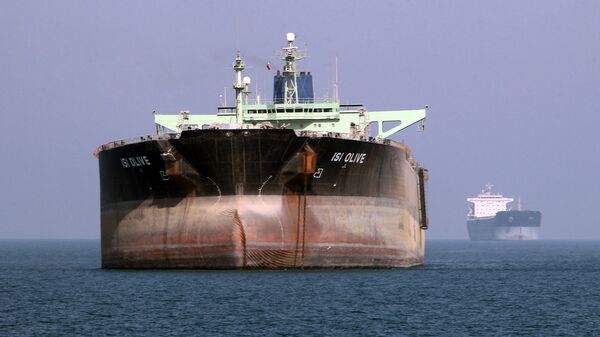The United States is lobbying in every way for the creation of an international maritime coalition to ensure the safety of shipping in the Persian Gulf, where the safety of oil vessels is allegedly threatened by Iran. So far, only the UK – a faithful ally of the United States – has officially announced that it will join the mission to protect merchant vessels. Last month, the United States invited Japan to join the coalition; Asia's second-largest economy is an importer of oil from the region and its energy security is predicated on it being able to secure oil from the Persian Gulf.
Until recently, it was not clear whether a similar American proposal was presented to Beijing, which maintains energy ties with Iran but also imports oil from its key rival in the region, Saudi Arabia. However, in late June, US President Donald Trump tweeted that China, Japan and other countries “must protect their own ships” in the Persian Gulf region, where the US Navy's Fifth Fleet is based, in Bahrain. The information voiced by the Chinese Embassy in Abu Dhabi is the first evidence that Beijing received such an offer from Washington.
Earlier, experts from different countries that were interviewed by Sputnik criticised the possibility of creating such a coalition.
Meanwhile, political scientist Oleg Matveychev, a professor at Russia's Higher School of Economics, admitted that under certain conditions, China could take advantage of the US offer to escort its commercial vessels:
“The talk about the threats posed by ships in the Persian Gulf is completely artificial. It was created by Trump and Israel to increase pressure on Iran, to once again talk about sanctions, to renegotiate the nuclear deal on other conditions, to introduce some other restrictions on Iran, which they have been strangling economically and politically for many years. As part of this general campaign, they resort to provocations and make all kinds of statements that it is dangerous in the Persian Gulf, that someone was captured there.”
One of the latest news topics is the US inviting China to accompany its ships. China may actually take up the offer. China may consider the matter and decide it should indeed introduce its military vessels there, which would once again demonstrate China’s strength and ability to maintain a presence in different regions, while helping Iran at the same time. China can take advantage of this diplomatic miscalculation of the United States and, indeed, introduce military ships in the Persian Gulf. However, since China is one of Iran’s most important trading partners, Iran is unlikely to create problems for Chinese commercial vessels.
Is there a threat to the safe passage of oil tankers for China through the Persian Gulf today? Sputnik has asked Chen Xiaoqin, a professor at the School of International Studies at China's Renmin University.
“The Persian Gulf is a very unstable region where local conflicts constantly arise; especially now, when there are serious contradictions between the US and Iran. One such example is the recent bombing of a tanker in the Persian Gulf. All this can create a certain threat to the passage of tankers for China; there is a risk of an attack."
Whose side can we really expect to attack Chinese commercial ships in the Persian Gulf?
“It is difficult to say which party would have such an opportunity. From the point of view of the conflict of interests, it is obvious that in the event of a conflict, this artery of oil supplies is very important. It is important to know which side China has a conflict of interests with. And if it arises, oil supplies will become a relatively big problem for China because, if the oil supply channel is blocked, it is very dangerous for China.”
Is the escorting of Chinese merchant vessels by Chinese warships, first of all, important with respect to safeguarding China's economic interests or flying the Chinese flag at this hot spot?
“Since China imports oil from the Middle East, it needs to ensure the safety of shipping. If security is not guaranteed, then sooner or later it will create great risks for Chinese imports of oil. Since we have this transit line, we must escort Chinese vessels and guarantee their safety within our capabilities. A security guarantee is a guarantee of commercial gain. Meanwhile, the oil problem affects not only the economic but also the political, military and strategic interests of China. Moreover, the escort of Chinese vessels by Chinese warships is China’s strong bid. Given regional conflicts and terrorist attacks, if China has such an opportunity, then it should try to do everything possible to ensure the security of various energy transportation routes.”
China's logistic support base in Djibouti provides it with participation in escort missions in the Gulf of Aden and off the coast of Somalia in the fight against piracy. The mandate for this is provided by the UN Security Council. Meanwhile, the US Navy Fifth Fleet is based in Bahrain. How, in the context of the global military-political confrontation between the United States and China, will their ships be simultaneously present in the Persian conflict in the event of force majeure? There is still no simple and clear answer to this main question.




